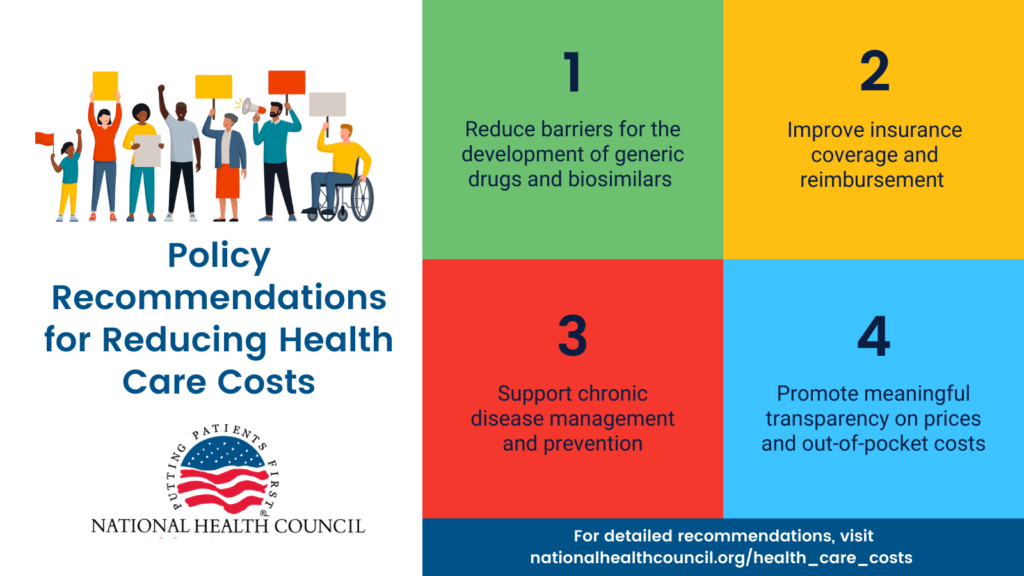NHC Updates Health Care Cost Policy Recommendations
By Eric Gascho, Vice President, Policy and Government Affairs
One of the biggest barriers to access and health equity is the rising cost of care, especially for the more than 160 million American with at least one chronic disease and/or disability. The National Health Council (NHC) is committed to advocating for a society in which all people have equitable access to high-quality health care designed around the health outcomes most important to patients.
The nation is at a critical point in deciding the future of health care. Congress and the Administration are debating efforts to improve health care access and reduce federal spending, with discussions focused on increasing the number of people with health insurance coverage, changing the way the government pays for drugs, and health equity. As the health care reform debate progresses, it is essential policymakers understand the impact of various proposals on patients and prioritize ones that best limit patient financial barriers to accessing care.
The NHC’s Reducing Health Care Costs (HCC) Initiative, which began in 2016, critically screens a range of policy proposals designed to curb health care costs and establish policy recommendations. The HCC Initiative prioritizes patient-centered policies that contribute to equitable health care access.
Under our most recent analysis, the NHC screened a diverse set of policy proposals against a patient-centered framework with four driving principles and 20 specific values. To guide recommendations, the policies must:
- Promote high-value care;
- Stimulate research and competition for health care products and services;
- Curb costs responsibly; and
- Ensure health equity.
Once screened, the NHC focused on a set of policy recommendations that: 1) align with the above principles, 2) demonstrate the potential to result in cost savings for patients and/or the health care system, and 3) have a reasonable likelihood of gaining sufficient political support.
Across its various programs and policy priorities, the NHC is committed to increasing access to sustainable, affordable, high-value care. As such, for each policy we recommend, we uphold that savings achieved through policy reforms must be directly reinvested to benefit patients and the systems that support them. While many of our recommendations would include upfront costs to the government or health care system, we feel these investments are crucial to ultimately reduce costs patients pay to manage their chronic conditions.
The NHC strongly opposes policies that achieve savings if they negatively impact patient safety, quality, or access to existing or future care. Additionally, it is important that any efforts designed to reduce health care costs must be predicated on promotion of value as defined by the patient. The NHC actively supports efforts to better incorporate patients into the ongoing debate on defining value in health care.
The NHC and its Board of Directors, with input from its members, identified four main policy priority areas that have the potential to reduce costs for patients and the health care system:
- Reduce barriers for the development of generic and biosimilar products, and expedite approval of certain generic applications.
- Improve coverage and reimbursement requirements to expand patient access and promote value.
- Support chronic disease management and prevention.
- Promote meaningful transparency on price and cost sharing.
To read more details about our 2021 Reducing Health Care Costs (HCC) Initiative proposals click here.



